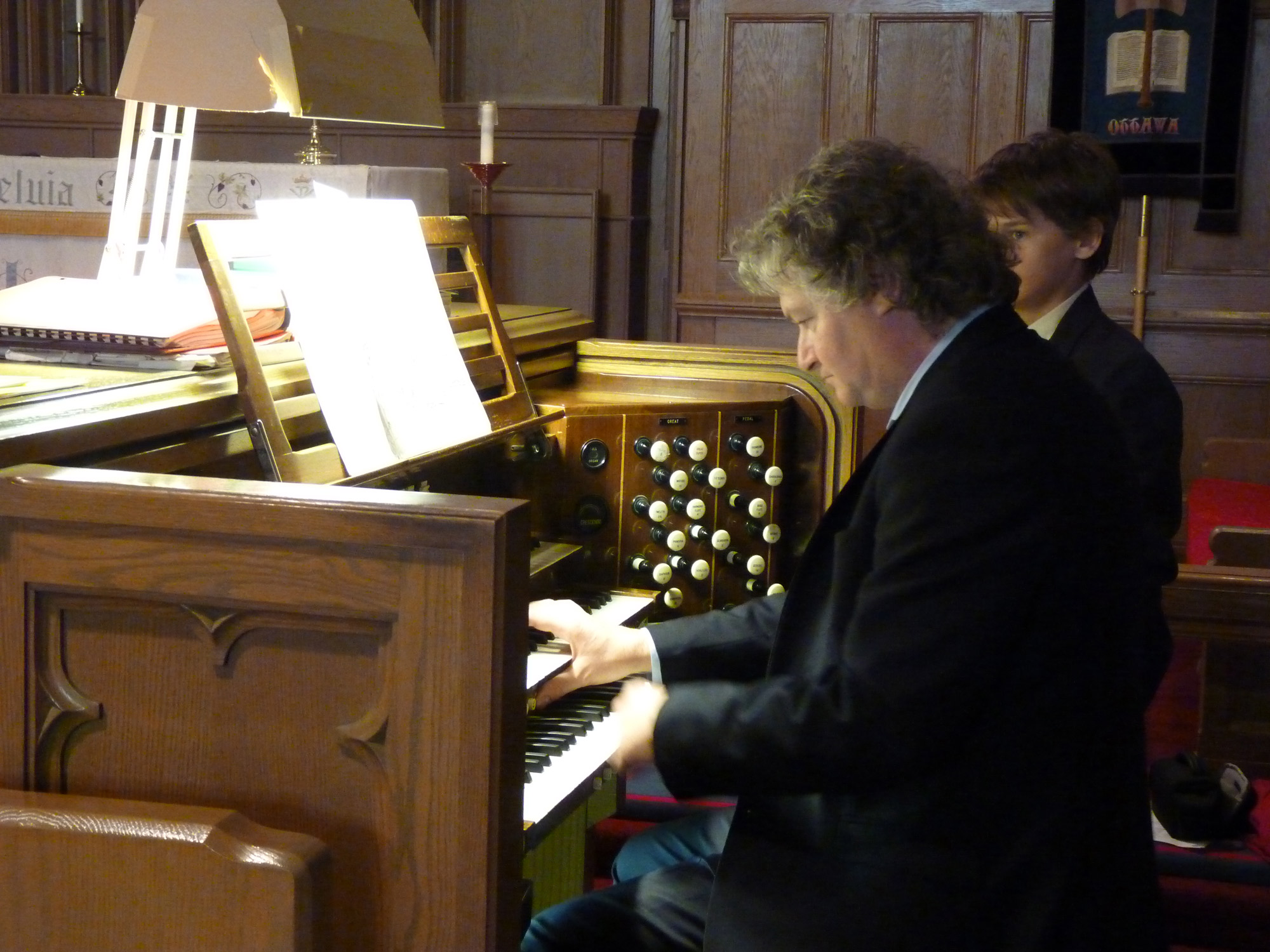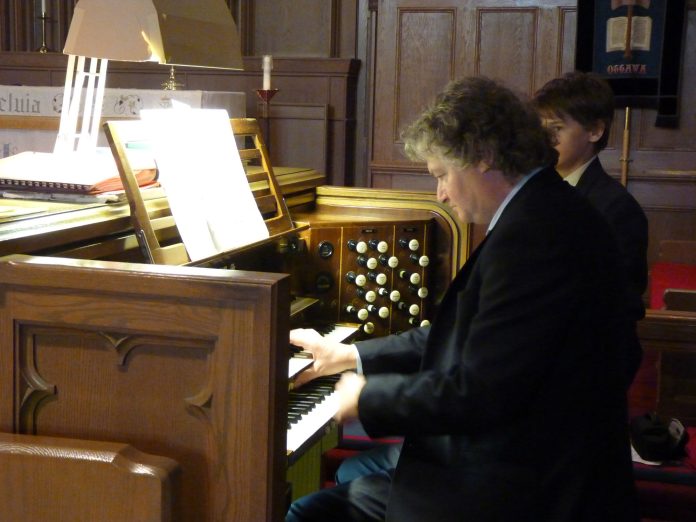By Judith van Berkom –
As the congregations of St. Matthias Anglican and All Saints Anglican churches prepare to merge, a deep sense of loss and uncertainty can be felt. There’s also the issue of the organ at St. Matthias, a three-manual pipe organ built by the Casavant company in 1957.
When the church amalgamation takes place in February 2016, St. Matthias and its contents will revert back to the diocese. The fate of the organ is unknown, but there are also beautiful stain glass windows, the smaller ones donated as memorials, but some windows created by the world-renown stain glass artist, H. Horwood.
But aside from the contents of this old church, there’s a community which will no longer exist, a musical tradition which is bound to change.

“It’s a tragedy,” says Dr. Deirdre Piper, who has been musical director at St. Matthias for over 25 years, adding that that church is her home.
All Saints has different priorities, and a different tradition than St. Matthias, which as Deirdre explains, has a long musical tradition. Music took a central role, and the Casavant organ “was a priviledge to play,” says Deirdre.
St. Matthias Anglican Church began in 1880 as a mission church of All Saints Anglican on Richmond Road in Westboro. The congregation settled originally on Rosemount in the old Orpheus building. The land was sold in 1930 during the “huge demographic bubble of church attendance – directly related to WWI and WWII.” The Anglican diocese built churches then as the need arose. St. Matthias church relocated to Parkdale and built the current church in stages. The church was completed in 1948 and accommodates between 500 and 600 people. By 1968, the culture had shifted and church attendance declined.
“Now we face generations who have no idea what spirituality is,” explains Reverend Canon John Wilker-Blakley, the current priest at St. Matthias. Hired just two years ago to assess viable options for the future of the church, which no longer had the financial capacity to keep up the property, John’s expectation upon arrival was to rebuild. After extensive research and consultation, the church community decided to abandon the building – too expensive to renovate or demolish and rebuild. St. Matthias Anglican church will close its doors in February 2016 and merge with All Saints in Westboro.
St. Matthias has a long musical tradition. Their 20- to 25-member choir has been in existence for over 50 years. The Casavant organ was installed in 1957 and has since been rebuilt. Casavant Frères is a prominent Canadian company, which has been building pipe organs since 1879. Their reputation as organ builders of international status grew in 1891 with the construction of the organ for the Notre-Dame de Montréal Basilica.
Before Deirdre took over as the director of music, organist, composer and choir director, Robert Flemming was the organist at St. Matthias.
Seventy percent of the current congregation comes from outside the area – largely because of the high caliber of music.
On November 22, a members’ recital in celebration of the Casavant organ and the music programme of St. Matthias Anglican church was organized by The Royal Canadian College of Organists (RCCO), Ottawa Centre. Proceeds went to the RCCO Scholarship Fund in support of young organists.
The programme brought together many well-known organists and composers in the Ottawa area, such as Matthew Larkin, director of music at Christ Church Cathedral; Heather Rice, organist, playing a piece by Gilles Maurice Leclerc; Wesley Warren, director of music at St. Barnabas Anglican Church, playing Bach’s prelude and fugue in G (BWV 541); Gilles Leclerc, composer and organist, playing a piece written in memory of Gerald Bales; Rachel Laurin, Canadian composer and organist, presenting the Canadian premiere of the Fantasy and Fugue in D (opus 73); and Deirdre Piper, director of music at St Matthias for over 25 years, playing her own composition written for the occasion.
The choir, some of whom have been singing at St. Matthias for over 30 years, sang two pieces – one by John Scott who died earlier this year “When in our music God is glorified” and Gerald Bales’ “O Lord, from whom all good things do come.”
More information about the church amalgamation process can be found on the St. Matthias website. For a closer look at the decision to close, take a look at this documentary film that was produced by Carleton University students in 2015.
(It is also accessible by clicking here. )
